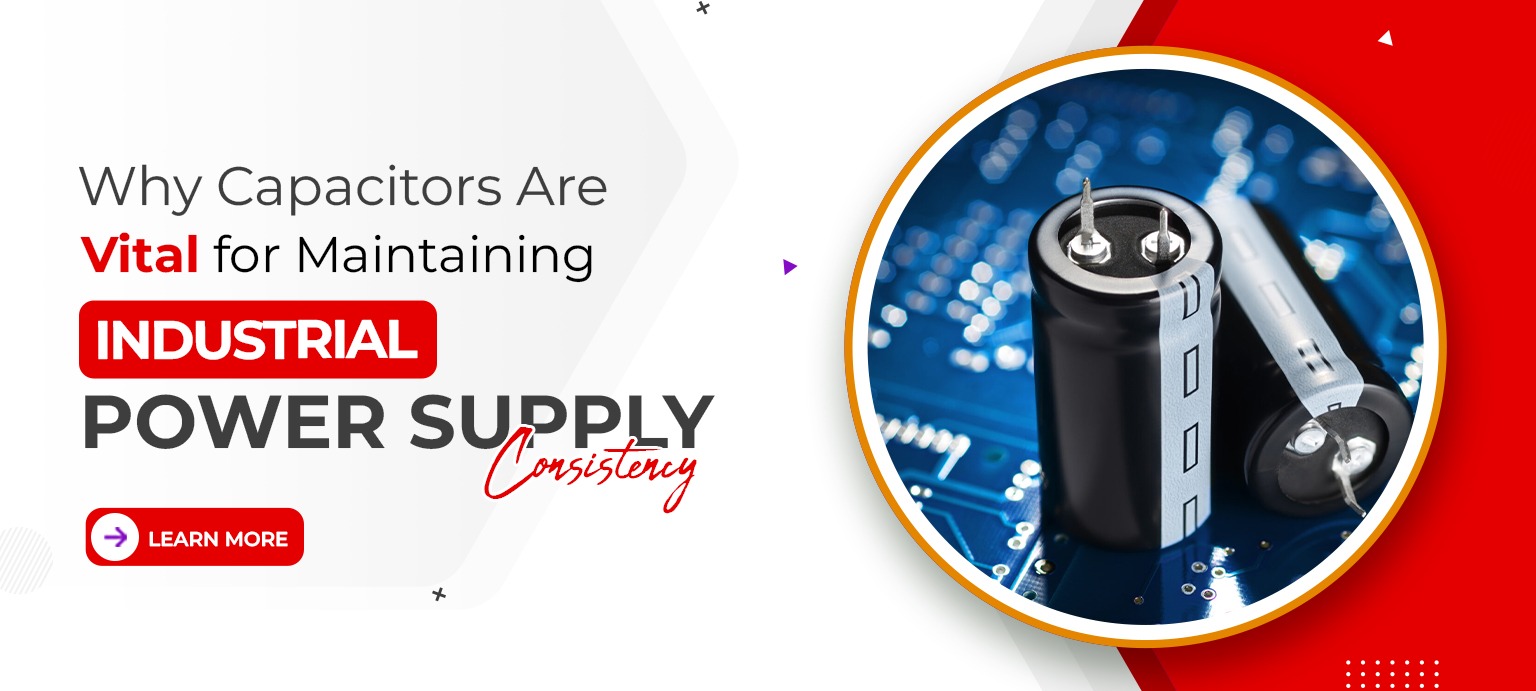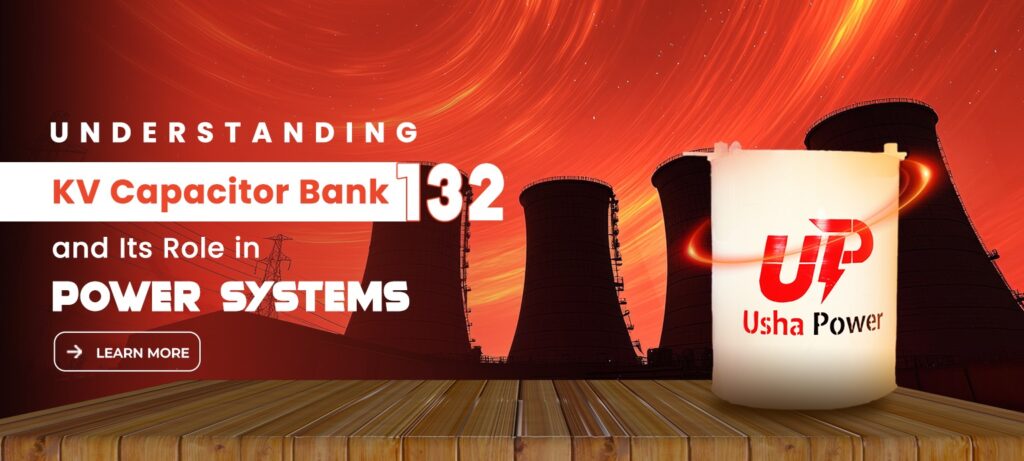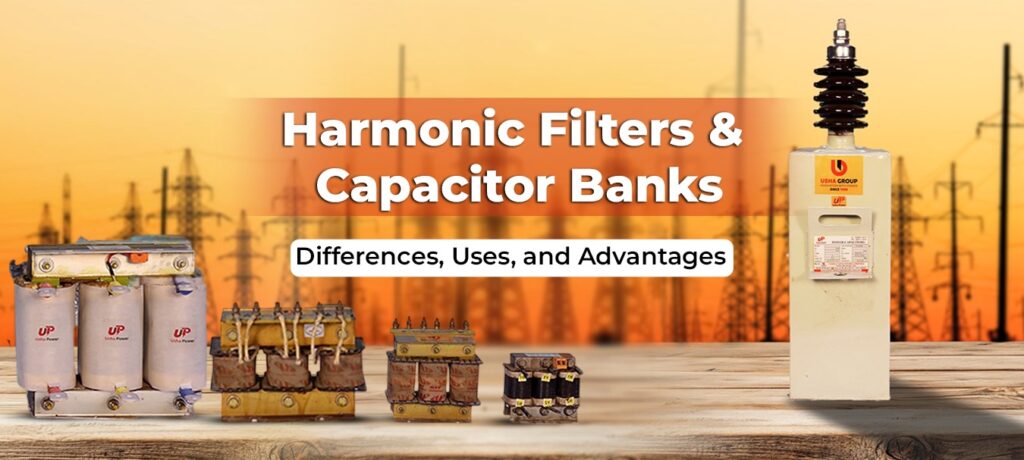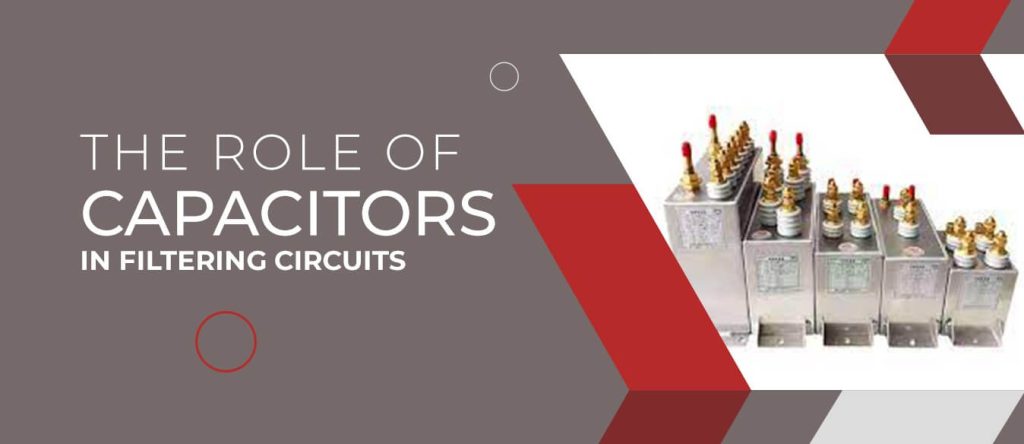Capacitors are one of the most critical components in modern industrial power systems. These devices, known for their ability to store and release electrical energy, play a pivotal role in maintaining power supply consistency across various industries. With the increasing demand for efficient and reliable power, the importance of capacitors has never been more pronounced. In this blog, we’ll explore why capacitors are vital for ensuring the consistency of industrial power supply and how they contribute to smoother, more efficient operations.
The Role of Capacitors in Power Supply Systems
Capacitors are essential in industrial settings for stabilizing voltage and regulating electrical flow. They are designed to temporarily store electrical charge and release it when needed, helping to smooth out fluctuations in power. These fluctuations can cause equipment failures, reduce efficiency, and lead to costly downtime. Capacitors act as a buffer, ensuring that the power supplied to industrial equipment is stable and reliable.
Voltage Stabilization
One of the primary functions of capacitors in industrial power systems is voltage stabilization. Industrial machines often operate on high voltage, and even slight variations can disrupt operations or damage sensitive equipment. Capacitors help regulate the voltage by absorbing excess energy during spikes and releasing it when there is a drop, keeping the voltage within safe operating limits.
Reducing Power Loss
Power loss, or energy dissipation, is a significant issue in industrial power systems, especially in large-scale operations. Capacitors improve power factor correction, reducing the amount of power lost during transmission. This results in lower energy consumption, reduced operational costs, and increased overall efficiency. In industries where energy usage is high, such as manufacturing or processing plants, the cost savings from improved power factor correction can be substantial.
Capacitors and Power Factor Correction
Power factor correction is a crucial aspect of industrial energy management. The power factor is a measure of how effectively electrical power is used. In an ideal scenario, all the power supplied to a system would be used efficiently. However, in reality, some of the power is wasted, especially in systems that rely heavily on inductive loads like motors, transformers, and compressors. This is where capacitors come into play.
Improving Energy Efficiency
Capacitors are used to correct the power factor by balancing the reactive power in the system. Reactive power, caused by inductive loads, does not perform any useful work but is necessary to maintain the voltage levels. Capacitors help neutralize this reactive power, allowing the system to operate more efficiently. By improving the power factor, capacitors reduce energy waste, leading to more efficient industrial operations.
Reducing Strain on the Power Grid
In addition to improving energy efficiency within industrial facilities, capacitors also reduce the strain on the overall power grid. When the power factor is low, the demand for power increases, putting more pressure on the grid and potentially leading to power outages or system instability. Capacitors help maintain a balanced load, reducing the likelihood of grid-related issues and contributing to a more stable industrial power supply.
How Capacitors Enhance Industrial Equipment Lifespan
The consistency of power supply directly affects the longevity of industrial equipment. Sudden power surges, voltage drops, and other electrical disturbances can lead to premature wear and tear on machinery. Capacitors help mitigate these risks by maintaining a stable power supply, thereby extending the lifespan of equipment.
Minimizing Downtime
Industrial operations are highly sensitive to downtime, as even brief interruptions can lead to significant production losses. Capacitors help prevent unexpected shutdowns caused by power fluctuations. By providing a consistent and stable power supply, they minimize downtime and ensure that industrial processes continue running smoothly.
Protecting Sensitive Equipment
Many industrial operations rely on precision equipment that is sensitive to even minor voltage fluctuations. Capacitors provide a protective buffer, ensuring that these sensitive machines receive a stable power supply. This protection not only prolongs the life of the equipment but also ensures that production processes are not compromised by electrical inconsistencies.
Capacitors in Harmonic Filtering
Harmonics in industrial power systems are a significant issue that can lead to equipment damage, overheating, and inefficiency. Harmonics are distortions in the electrical waveform caused by non-linear loads, such as variable frequency drives, rectifiers, and electronic devices. These distortions can cause overheating of transformers, increased losses in motors, and a reduction in the overall efficiency of the power system.
Filtering Harmonics
Capacitors play a critical role in harmonic filtering, reducing the impact of these distortions on industrial systems. By filtering out the harmonics, capacitors help maintain the quality of the power supply, ensuring that the electrical equipment runs smoothly and efficiently. Harmonic filtering not only improves performance but also reduces the risk of equipment failures caused by overheating or excessive vibration.
Enhancing System Reliability
With capacitors mitigating the effects of harmonics, industrial power systems become more reliable. This is crucial in industries that operate 24/7 and cannot afford unscheduled downtime. Capacitors help ensure that the power supply is clean and free of distortions, which, in turn, enhances the reliability of the entire electrical system.
Capacitors in Energy Storage for Industrial Applications
Another vital function of capacitors in industrial power systems is energy storage. In certain industrial applications, such as renewable energy systems or backup power supplies, capacitors are used to store energy that can be quickly released when needed.
Storing and Releasing Energy
Capacitors can store small amounts of energy and release it almost instantaneously. This makes them invaluable in situations where a quick burst of power is needed to stabilize the system. For example, in renewable energy applications, such as wind or solar power, capacitors store energy when production is high and release it during low production periods, ensuring a consistent power supply.
Supporting Emergency Power Systems
In industrial settings, capacitors also support emergency power systems. When there is a sudden loss of power, capacitors can provide a temporary energy source to keep critical systems running until backup generators or other power sources come online. This capability is especially important in industries like manufacturing or data centers, where even a few seconds of power loss can be detrimental.
Final Thoughts
Capacitors are indispensable in maintaining industrial power supply consistency. From voltage stabilization and power factor correction to harmonic filtering and energy storage, capacitors ensure that industrial systems operate efficiently and reliably. Their ability to regulate power flow, reduce energy loss, and protect sensitive equipment makes them a vital component in any industrial power system. As industries continue to grow and energy demands increase, the role of capacitors will become even more critical in ensuring a stable and consistent power supply.
If you are looking for capacitors that can enhance your industrial operations and provide the reliability your systems need, Usha Power is your trusted partner. We take pride in offering a wide range of high-quality capacitors designed to meet the diverse needs of various industries. Our team of experts is dedicated to delivering personalized solutions tailored to your specific requirements. Whether you need capacitors for voltage stabilization, power factor correction, or energy storage, we are committed to ensuring you receive the best products and support. Choose Usha Power, and allow us to help you achieve optimal efficiency and performance in your operations.





